467. Commentary
We meet in the midst of a nation brought to the verge of moral, political, and material ruin. Corruption dominates the ballot-box, the Legislatures, the Congress, and touches even the ermine of the bench. The people are demoralised; most of the States have been compelled to isolate the voters at the polling places to prevent universal intimidation and bribery. The newspapers are largely subsidized, homes covered with mortgages, labor impoverished, and the land concentrated in the hands of capitalists. The urban workmen are denied the right to organize for self-protection; imported pauperized labor beats down their wages, and a hireling standing army, unrecognized by our laws, is established to shoot them down, and they are rapidly degenerating into European conditions. The fruits of the toil of millions are boldly stolen to build up colossal fortunes for the few, unprecedented in the hisotry of mankind; and the possessors of these, in turn despise the Republic and endanger liberty. From the same prolific womb of governmental injustice we breed the two great classes - tramps and millionaires.
Let's see. That statement mentions the alleged moral subversion of the country, crooked politicians, crooked judges, questionable voting patterns, bribery, low wages, anti-union sentiments, immigrants taking jobs, home mortgage debt, the rich getting richer, a general dislike of the government, and the demise of the middle class. Quite a statement which may have been made at any time during the excesses of the last thirty years or so, and especially of 2008. But it isn't a recent speech of any current politician. It is the preamble to the People's Party's Populist platform from the presidential election of 1892. That election, the third of Grover Cleveland's, was his second electoral college victory (and for the record, his third popular victory). Cleveland defeated the man who had defeated him four years earlier, the incumbent Benjamin Harrison. Also in the race, running on the abovementioned platform was Union General James T. Weaver, of Ohio.
I bring all this up for no particular reason except to question whether things really change as much as we think they do or if the axiom that knowing the future relies on knowing the past is really true. How far or how long will our experiment in democracy last before some internal force changes it in a substantial way. It is obvious from the platform outlined by the populists 117 years ago that they were experiencing some of the same issues then as we are now. And while there were dramatic policy changes under Taft (yes Taft, and not TR), Wilson, FDR, and most every one who followed FDR up until Jimmy Carter (including the last of the New Dealers, Nixon and Ford), what lasting effect have they had if we are back to where we were in 1892? Arguably, we were on the road of progress when the Republican Party's Southern Strategy used race as an entree and other forms of discrimination as second, third, and fourth courses, to stifle the progress begun during the 20th Century. The expanse of the middle class's incomes in the 1990s under Democrat Bill Clinton, rather than acting as a rising tide and lifting all boats, had the effect of moving people out of the middle class and into a faux-upper middle class, built on promises, loans, home equities, and lower taxes. 2008 brought all that to an abrupt end, and 2009 has many of us wondering if the policies promoted by our new president are enough, too much, will repeat past mistakes, or create new ones. There isn't a good answer as we all have to wait and see what happens. Or do we?
Can we not go back through the annals of American history and apply the lessons learned when we've been in these places before? Again, the preamble above makes clear this isn't the first time. Nor was the Republican-engendered Great Depression the first time. There is an apparent cycle. And thus, does any of it really matter? I had a discussion with a friend earlier this evening (actually two friends), where one posited the idea that we should never worry about our deficits or the idea that the Treasury shouldn't be free to print money at will. There are economists and other talking heads out there who've made the point (and I've echoed them herein in a post back in January) that all the ideas put forth by FDR in the 1930s really didn't pan out until there was extensive and expansive spending once we entered the Second World War. With advances all around the globe, and nuclear power in the hands of many, we have probably put to rest the idea of a World War Three, the exception to that being religious fanaticism, something over which we have no control. (We can't even control the religious fanatics in our own country). So what will be the reason for an injection of money into the economy on the level of that injected in the 1940s? I do not pretend to know the answer, or even to know if there is one.
Ours as Americans is an experiment in governance, a give and take, a trial and error, and one with economic upturns and downturns. We do seem to recover each time although such recoveries take a generation or two. Can we wait that long this time around? Does our insistence on instant gratification extend to helping and serving the Republic in her time of need, making the sacrifices that those before us have made, both here at home, and on the political, economic, and the brutally real battlefields of wars in the past? Again, I don't know.
I am happy that we are willing now and then to advance the baton, "passing the torch" as President Kennedy said, to a new generation, as we did by electing Barack Obama last November. But, in the same speech of passing the torch, Kennedy went on to point out that we have the power to end poverty and end the human race. Fortunately, we haven't done the latter. Admittedly, we haven't done the former either. So, thus we continue the struggles, recognising that as there has always been and will always be, much left to do.


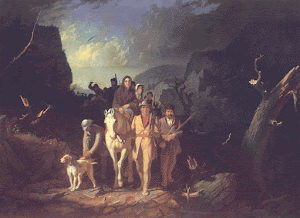












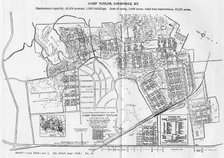
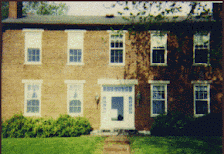

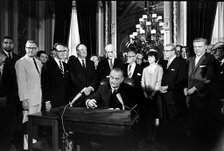

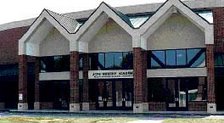
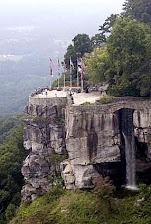

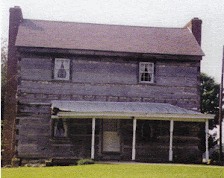
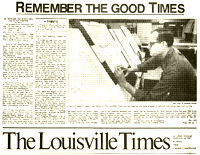
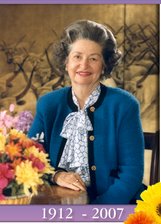
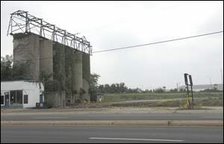
No comments:
Post a Comment